Reinventing retail - Department Stores Shift towards Sustainable Fashion
DEPARTMENT STORES ARE VENERABLE INSTITUTIONS IN THE FASHION INDUSTRY. WHAT HAPPENS IN THEM WILL SET THE TONE FOR WHAT CONSUMERS CHOOSE - AND ARE ABLE TO BUY. FOR THE CONSUMER THEY’RE MORE THAN JUST A SHOP. THEY OFFER AN EXPERIENCE AND INSPIRATION, THEY SELL DREAMS. MORE AND MORE FREQUENTLY WE CAN SEE HOW DEPARTMENT STORES ARE MOVING TOWARDS CONSCIOUS FASHION. WE VISITED SOME OF THE GLOBAL FAVORITES IN LONDON, NEW YORK AND PARIS TO FIND OUT MORE.
words by HOLLY KELSEY
photographs London and Paris by HOLLY KELSEY
photographs New York by ANDREW DAY
To have access to sustainable fashion in bricks and mortar is often a rarity, so to see many businesses making the shift is a really encouraging sign for the slow fashion movement. A lot of consumers still think it’s hard to find a really good place for curated sustainable fashion and find it’s usually easier to buy online or maybe once in a while visit a secondhand or vintage store which may not be as carefully curated.
But now, with department stores making this move there is a lot more pressure on brands to up their sustainability game. Changing the way we shop is one of the key components of embracing a more positive future for fashion. It’s all about changing the shoppers' mindset. So when there are sustainable brands right in front of you, it’s much easier to engage with ethical fashion.
For department stores it’s also about appealing to younger audiences, quite a lot of whom have an interest in sustainability. As we’ve seen in the past, if department stores don’t keep pace with consumers values they become extinct. They need to adapt to survive - it’s enlightened self-interest. Department stores have started showcasing higher quality products, slow fashion brands and resale, partnering with different initiatives which encourage consumers to be more environmentally friendly. It’s all about collaboration and commitment to ensure that this new sustainable business model works right across the industry.
LONDON
Selfridges
Possibly the biggest game changer of the department stores, Selfridges has always been attuned to the zeitgeist. They embraced the concept of sustainability back in 2005. In 2020 they launched their own sustainability initiative: ‘Project Earth’. This is comprised of three steps which include: driving a transition to more sustainable materials, exploring new business models, and challenging the mindsets of their external partners and customers as well as their own in-house teams. Step by step, they are reinventing retail. They have also signed up to the climate pledge of achieving Net Zero by 2040. They no longer sell fur or exotic skins. Their commitment to circularity extends to the beauty department, with refillable options available for shoppers.
A new “concierge” service will help to organise product repairs and they have already launched new business models for resale and rental. Selfridges have also partnered with Reture, an up-cycling platform, which reduces fashion production and consumption by giving new life to garments you already own.
They even offer a rental service, in partnership with the rental platform Hurr. This is of genuine benefit to the rental market, because it means that shoppers are actually able to see and try on the clothes before renting them. Last but not least, you can also take advantage of RESELLFRIDGES, a niche service whereby you can sell your pre-loved designer accessories and also shop from a curated selection.
Harrods
Harrods has adopted a Luxury for Life initiative, enabling customers to embrace the concept of investing in products with extended lifespans. A recently launched service is The Restory, which gives consumers the option of aftercare to restore accessories. ‘The Tailors’ provides a bespoke alterations service that enables you to refresh your wardrobe by restoring or reimagining existing garments. Harrods has also partnered with MyWardrobeHQ, a rental platform in a section on the 4th floor. In addition, they are a member of Walpole, a non-profit organisation which promotes, protects and develops British luxury all whilst ensuring a more sustainable future.
PARIS
Printemps
The 1,300-square metre space that makes up the 7th floor is entirely devoted to luxury, vintage, secondhand and sustainable brands. The space is called 7e Ciel (Seventh Heaven) and includes fashion, beauty and lifestyle. Walking around 7e Ciel does actually feel as if you’re floating in the sky, as the room is flooded with light. Printemps also hosts workshops and conferences about sustainable and circular fashion with topics such as repairs and maintenance of products. Printemps have launched ‘Unis vers le beau responsable” (United for Responsible Beauty) which will display to consumers the brands that comply to highest standards concerning human, ethical, social and ecological responsibility.
Galeries Lafayette
In 2018, Galeries Lafayette launched their ‘Go for Good’ initiative to promote responsible fashion. The label covers a huge range of products, from Fashion and Accessories, to Beauty, Jewellery, Home and Fine Foods, across almost 800 of their brands. This involves having strict set of specifications on products with significant environmental benefits.
In their Haussmann store they have opened Le(Re)Store - a 500-square-metre space for circular fashion which includes secondhand, vintage, sustainable and up cycling brands. Galeries Lafayette have partnered with Vestiaire Collective in their Champs Elysees store, where customers can take advantage of the concierge service offered by this high-end secondhand fashion platform to sell on their premium, luxury or designer label clothes and accessories.
Le Bon Marché
In the beginning of 2022 Le Bon Marché collaborated with the artist Mehmet Ali Uysal to create an installation of an Iceberg inside their store raising awareness of climate change and the power of water. As well as organising talks concerning climate change and people's fascination with water in collaboration with charity Water Family. Instead of having air-conditioning on the roofs they are integrating vegetable gardens. Le Bon Marche is also very supportive for younger brands who are ethically made. As well as this, they educate their employees on materials, especially sustainable materials. There is L’Atelier where customers can buy denim and have them customised or tailored or customers can also bring in old denim pieces from home to bring life back into them.
NEW YORK
On the other side of the pond, the department stores aren’t striding forward in the slow fashion movement quite as much as in Europe, however, they are still making strong efforts. Their current focus is more towards topics such as inclusivity, body positivity and mental health.
Saks Fifth Avenue
Saks Fifth Avenue aren’t the picture perfect model of sustainability. However, we do want to point out the wonderful initiatives they are involved with. One of their biggest initiatives is helping Mental health, donating over $1 million to charities and grants as well as creating programs in more than 65 schools and colleges. Whilst walking around Saks, Andrew and Sarah asked a few store assistants about sustainability. One assistant told us: “We‘re not famous for that. We’re famous for fashion.” As if these two things would naturally be the opposite. Wanting to know more about the store’s sustainability policy, we spoke to another assistant, who stated that sustainability is not a criteria they look for when selecting the brands they feature. He added that we might find a brand or two with sustainable ambitions but that they have only a “random selection of brands that happen to be sustainable”.
Macy’s
By the end of 2020 Macy’s stopped selling fur in their stores. In line with Saks Fifth Avenue, Macy’s also decides for brands based on the fashionability and not sustainability. If a brand they like happens to be sustainable, it’s a byproduct. One of these brands is Eileen Fisher, one store assistant pointed out to us. Macy’s have created a campaign focused on inclusivity called “Own Your Style” and even in the store window you can see mannequins with various shapes and sizes.
Neiman Marcus
The Neiman Marcus Group have announced they will be phasing out fur for plant based alternatives. They have already started using vegan leather as well as up-cycled grape- and apple skin leather. Neiman Marcus is in the process of creating alterations bars and circular fashion hubs in which consumers can access customisation, refurbishment and even resale in stores.
Looking towards the future, prospects are promising with more and more of the younger generations invested in sustainable fashion and being considerate towards the planet. And it’s their passion that will drive the direction that department stores need to take in order to flourish.
Department stores are rather like the gate keepers of the fashion community: what the store buyers will choose to order is what we’re going to wear, so it’s important that these key players in fashion are committed to helping the planet and making it easy for us to make the right decisions for the environment. Creating a sanctuary of sustainability within a department store setting is the next movement. Connecting with the environment will breathe fresh life into these businesses and keep them relevant and this step change in their approach means that we can all seize the opportunity to play an active part in creating a better future.




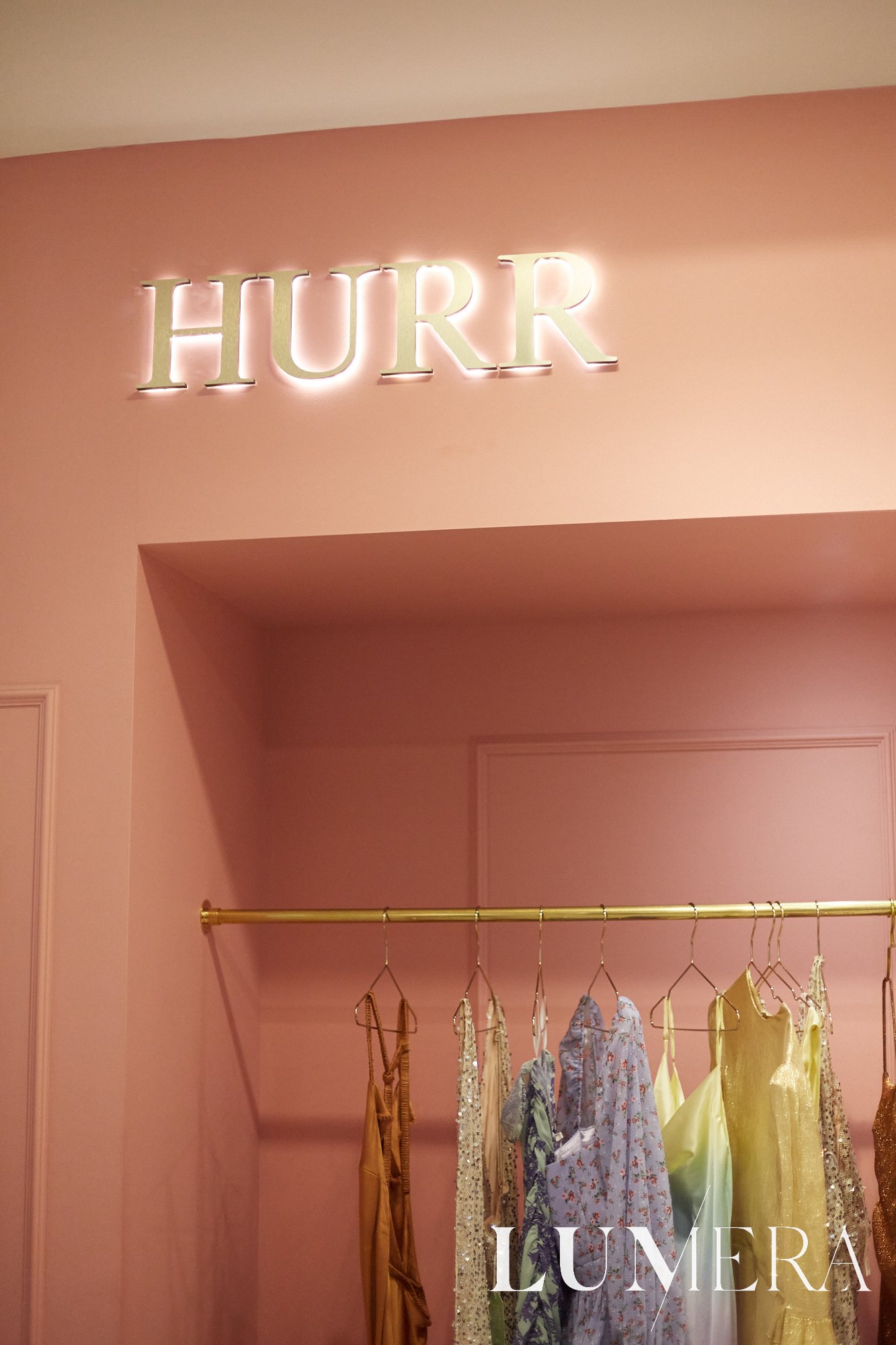
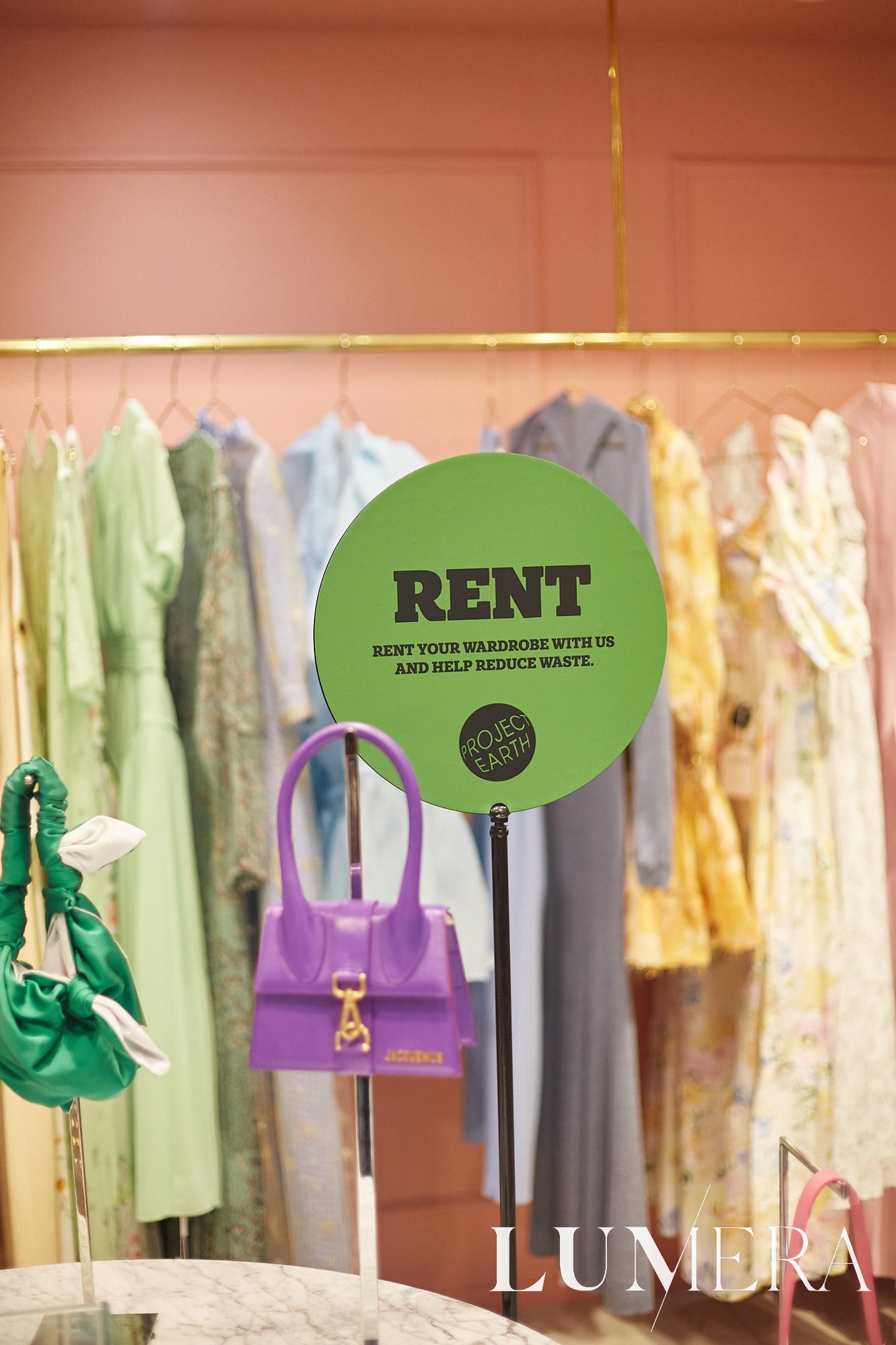

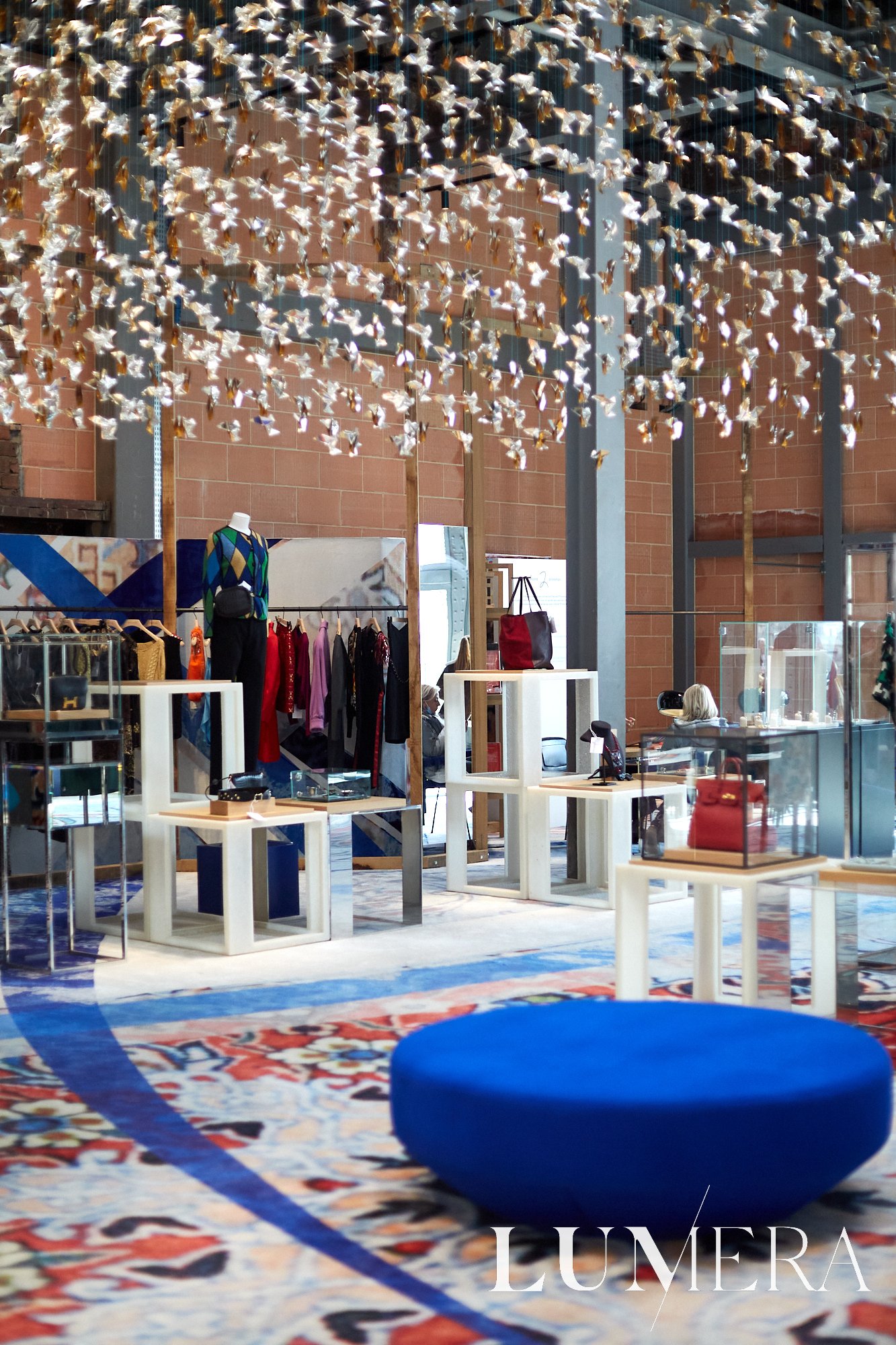
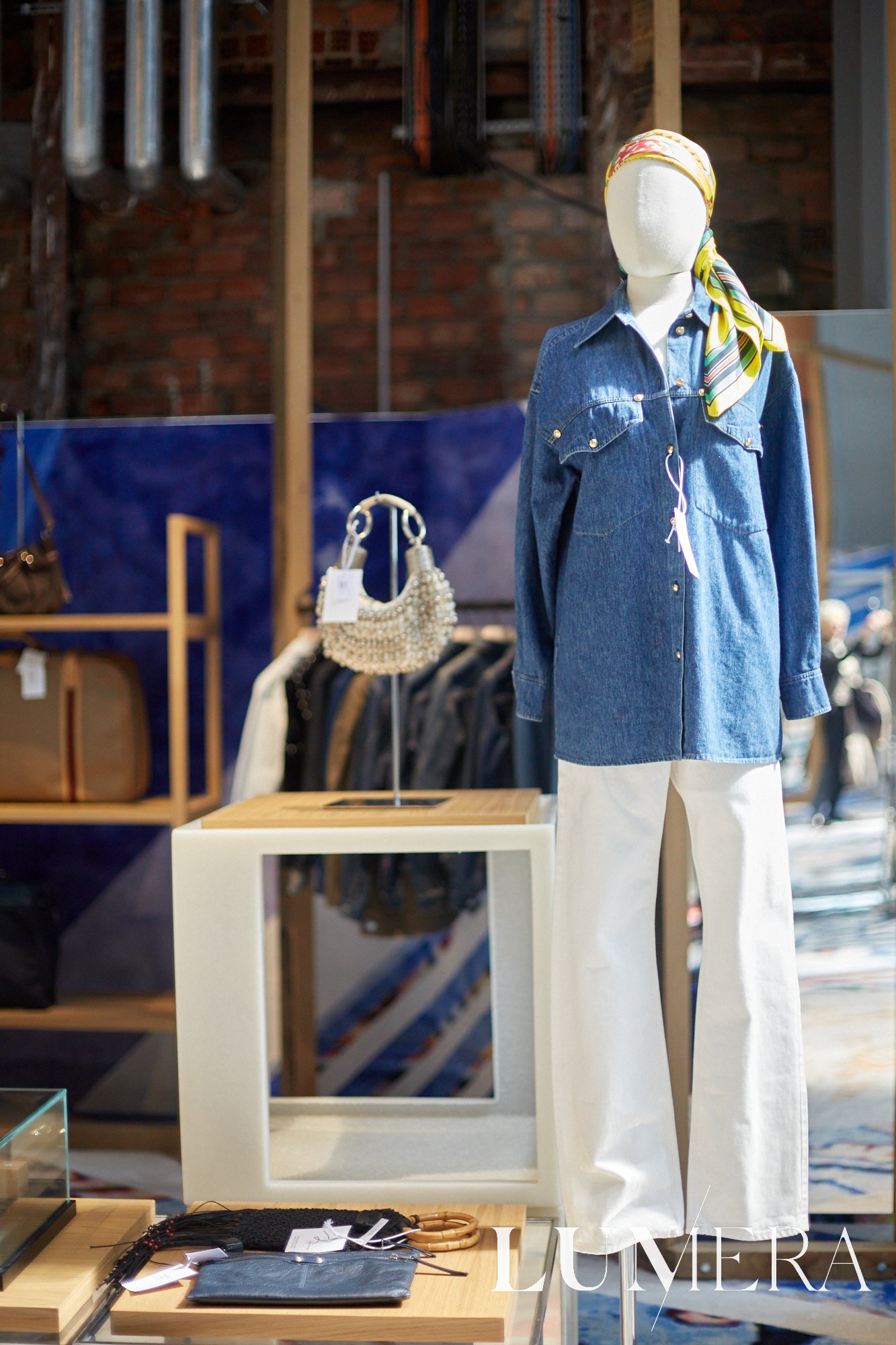
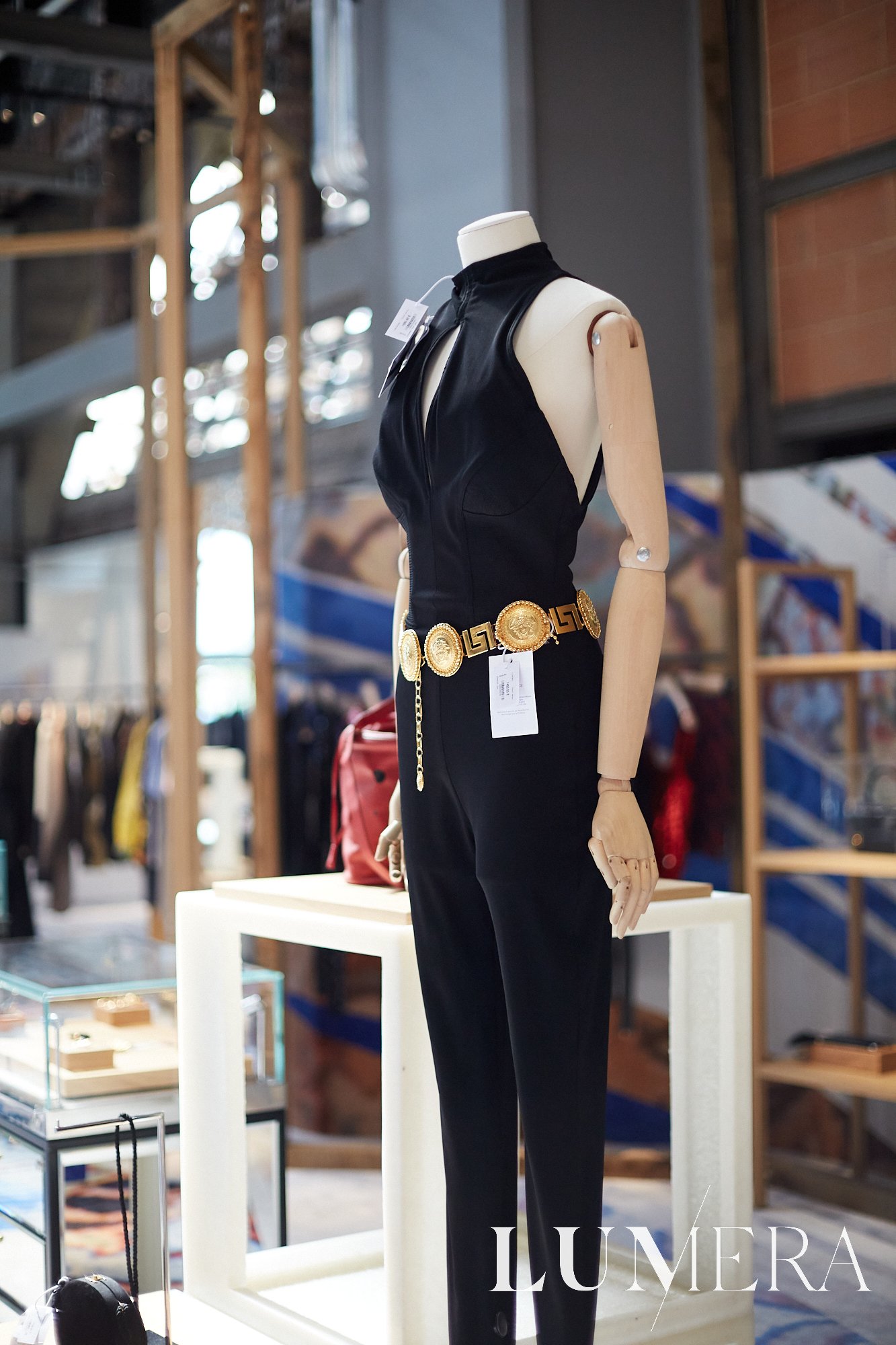
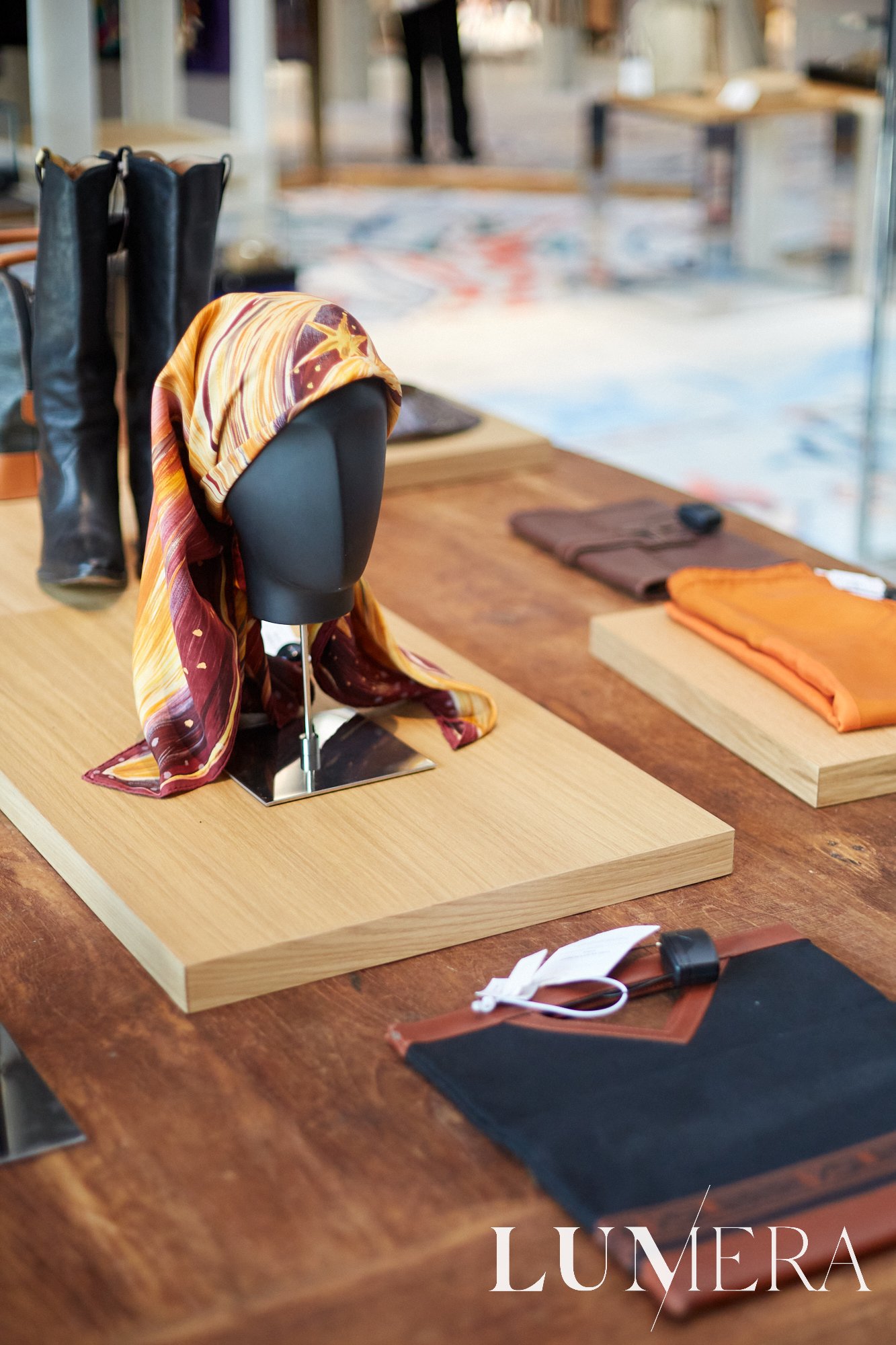


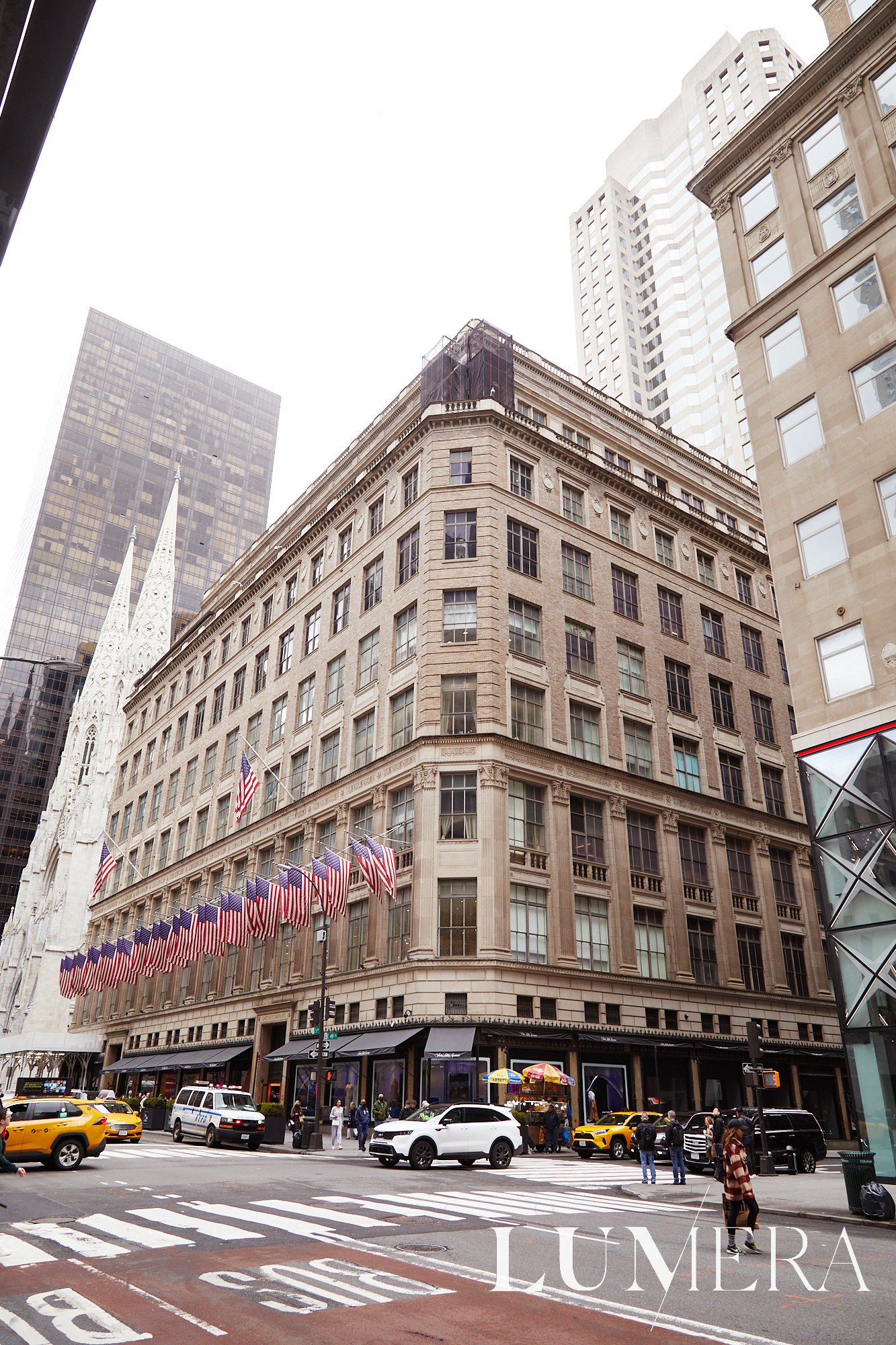
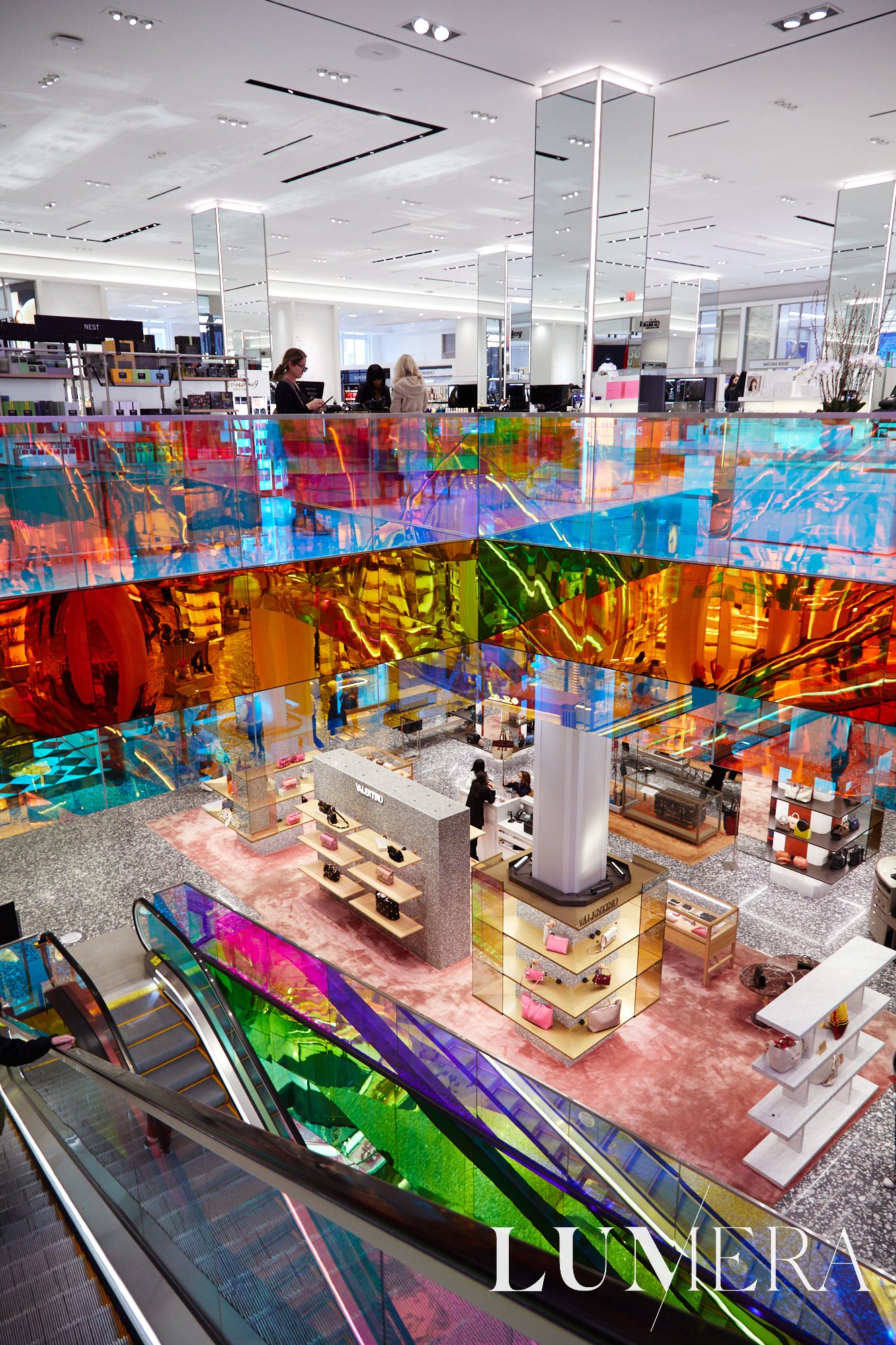
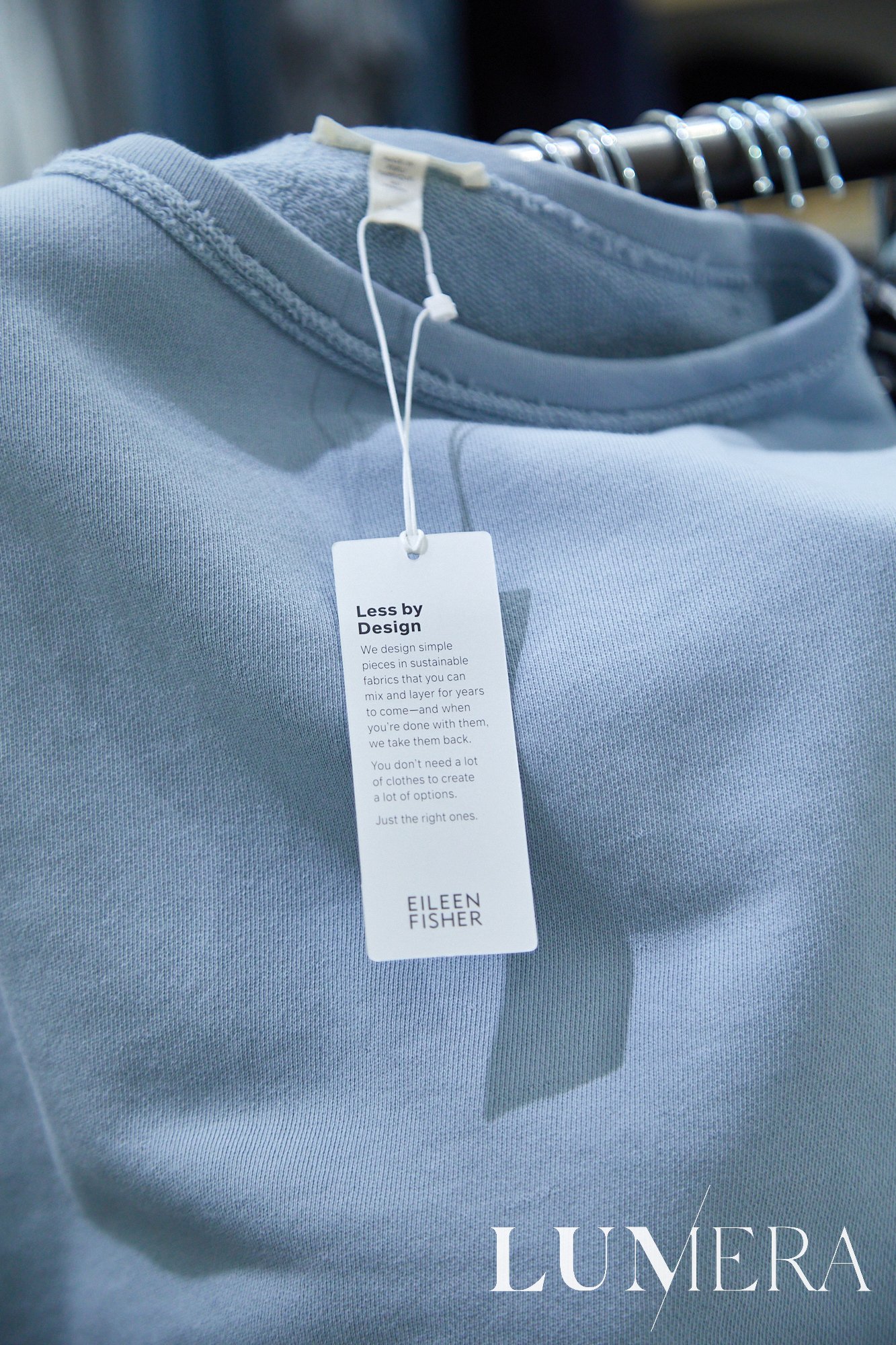
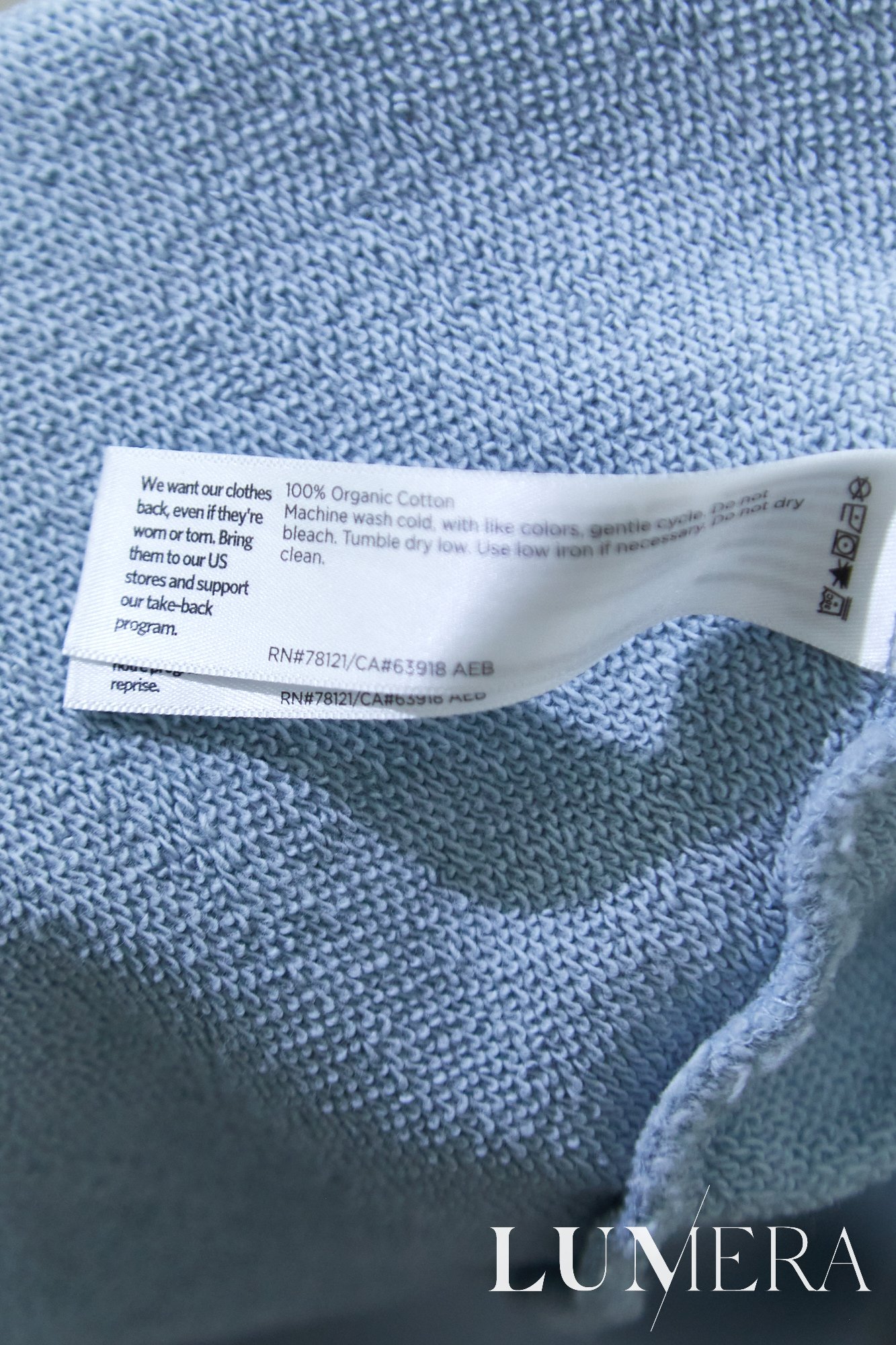




What do you wear for Sunday brunch? Or a relaxed Sunday at home? Daphne de Baat styles six sustainable outfits for Sunday occasions in New York City.